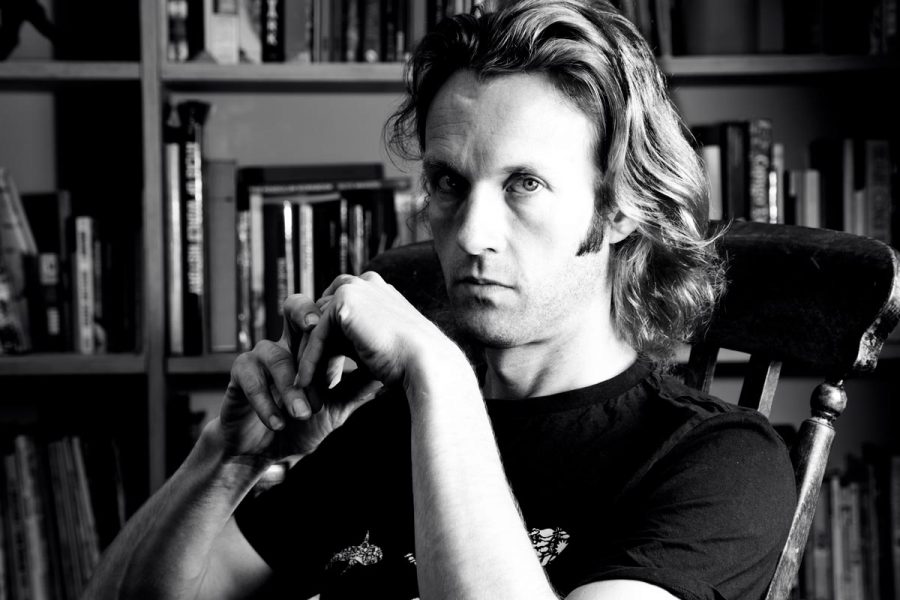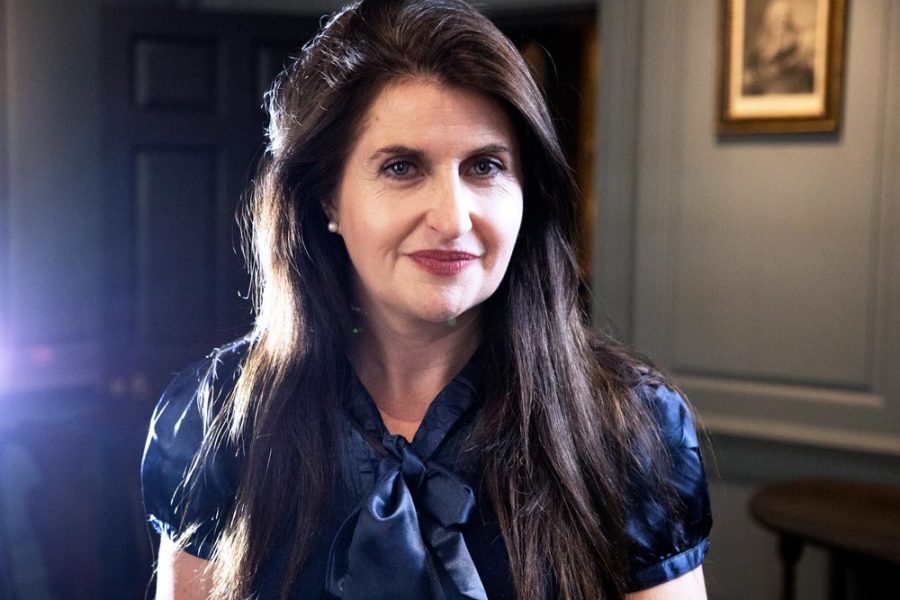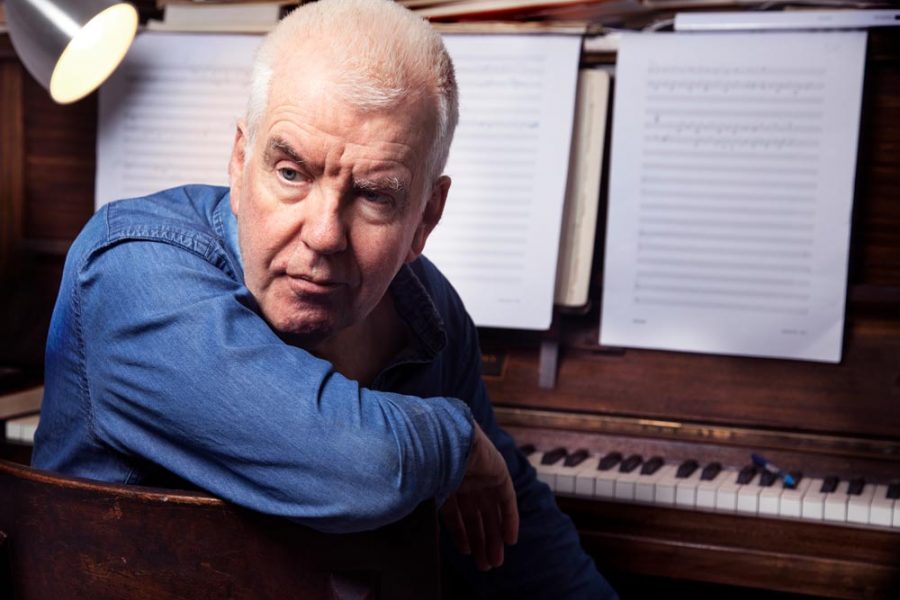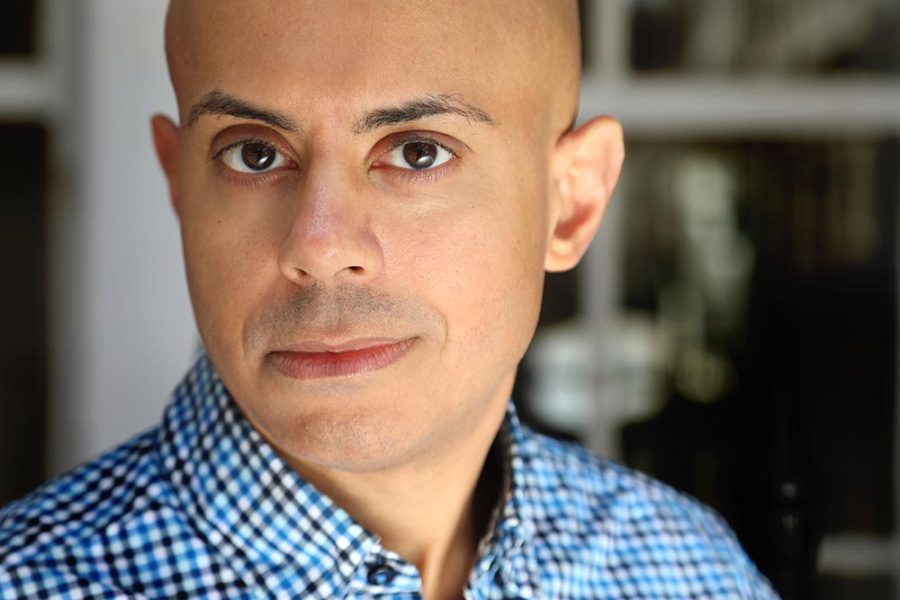Cambridge, Cape Town, and Carmen: A Conductor’s Life with Tim Murray

June 2016
Words by
Emer Nestor
Photos by
Frances Marshall
With a résumé boasting a plethora of successful international appearances in leading venues such as the BBC Proms, the Royal Opera House, Covent Garden, Liceu Barcelona, Théâtre du Châtelet, and Teatro Real, Madrid, the career of British conductor Tim Murray is going from strength to strength.
He has stood at the helm of numerous international orchestras and ensembles including the Birmingham Contemporary Music Group, Philharmonia Orchestra, BBC Concert Orchestra, Chroma, National Symphony Orchestra of Ireland, Cape Philharmonic Orchestra, London Philharmonic Orchestra, London Mozart Players, and City of London Sinfonia. Murray is former principal conductor of the Salisbury Sinfonia, and served as Music Director of Tête à Tête Festival in London. He was named a ‘Newcomer’ finalist in the 2015 International Opera Awards. Today, Murray is Associate Music Director of Cape Town Opera.
The Southampton-born conductor has garnered notable praise for his recent work in contemporary opera with projects such as The Freedom Game (Royal Albert Hall), Twice through the Heart (Sadler’s Wells), The Sleeper(Welsh National Youth Opera), Hogarth’s Stages (Royal College of Music), Babur in London (The Opera Group), Fantastic Mr Fox (Opera Holland Park), and The Silent Twins (Almeida Opera). His interest in contemporary dance has led to successful collaborations with leading choreographers Wayne McGregor and Will Tuckett.
Murray’s current and future engagements include: Gerald Barry’s The Importance of Being Earnest (Royal Opera House at the Barbican); Carmen (Cape Town Opera); a triple bill with the Royal Ballet at Covent Garden, including Esa-Pekka Salonen’s Nyx, Mandela Trilogy (Cape Town Opera UK tour and Ravenna Festival); Porgy and Bess (Teatro Colón); and a concert at Wembley Stadium with the London Philharmonic Orchestra.
Final Note chats to Murray about finding his niche, unpredictable performance moments, and the developing new world of opera in South Africa.
Did you find it difficult to break into the profession of conducting or was it a natural progression?
Hmm…I don’t think there’s been anything natural about my progression at all, or at least it doesn’t feel that way. I was never the kind of person who could achieve huge things in my early twenties—actually I could barely get out of bed in my early twenties—so things took a while to get going. But I was always learning, by assisting, being a répétiteur and chorus master, and eventually finding my niche in contemporary and twentieth-century opera, where I am now probably best established. Ten years ago a distinguished agent told me that I would be a ‘slow burn’—I kind of took this as a compliment, and luckily over the last 3 or 4 years I have spontaneously combusted a bit!
The relationship between a director and conductor is so crucial..."

Having conducted across the orchestral, operatic and dance spectrum — do you have a preferred genre?
No. I love them all equally. Orchestral music was my first love, and it’s great to finally be paying it a bit more attention. It’s an itch I haven’t scratched properly for a while.
I do feel very much at home when I am in the theatre, and I really enjoy collaborating with people from different disciplines. The relationship between a director and conductor is so crucial, and I find it hard to understand why people agree to conduct opera without really engaging with the storytelling, or even spending much time in the studio. It’s an undeniably great art form, but it requires an intense collaboration, and quite simply time. And I think audiences can tell when a show has been slapped on the stage without this process.
The same goes for dance conducting. I’ve been lucky in this respect, as I have tended to work on new pieces where I have input into the musical side of things from the beginning. I’ve worked a lot with Wayne McGregor, who I think is amazing; he’s very sensitive to the music and also quite analytical, which I like. And when you see the dancers at the Royal Ballet in full flow, for example in Wayne’s new Obsidian Tear at the Royal Ballet, with a massive piece by Esa-Pekka Salonen in the pit, it’s…well, it’s a pretty decent way to earn a living.
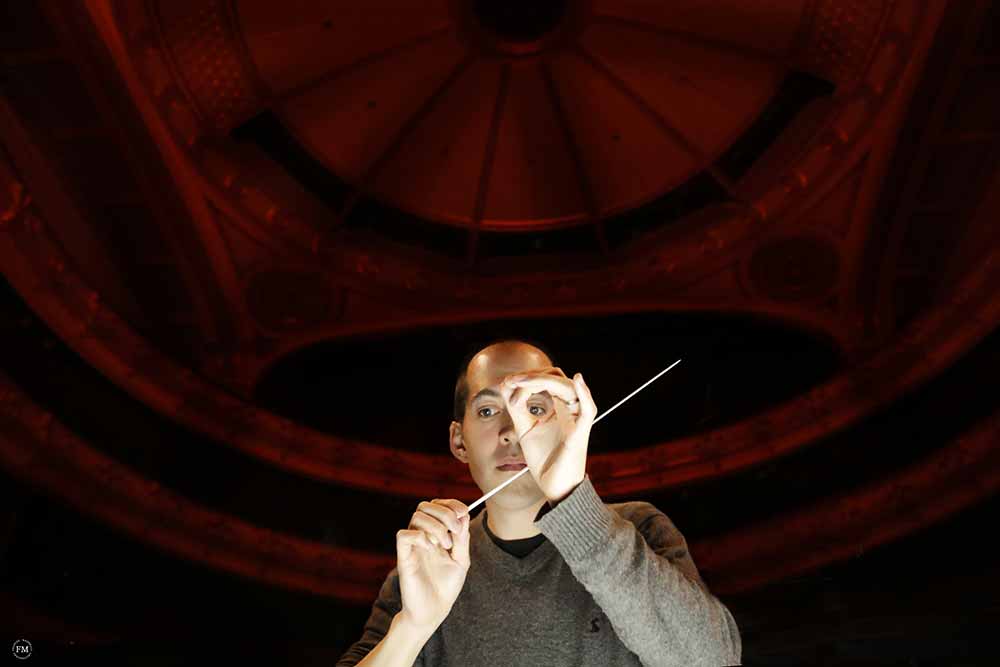
Over the past three years you have developed an eclectic portfolio of new music debuts — why is contemporary opera important to you?
Because the art form must re-invent itself to survive! Because I think there are still many new and exciting ways to tell stories with singing, and it is wonderful to conduct something without the weight of tradition behind it. And I really like composers…they are interesting people struggling to create new things, and it’s my job to stick up for what they have written, but also to be critical and sometimes to challenge them. In my years with the smaller opera companies in the UK, principally Tête à Tête, ROH2 and The Opera Group, I developed a very particular way of working with new music—a kind of continual development and sense of investigating the material in quite an open-ended way. Put bluntly, it makes no sense to decide on day 1 that the piece ‘goes like this’—one needs to be flexible and critical, and to really listen. And if it doesn’t work, change it. I’ve found this approach works in the larger productions I now do, and of course it works for Mozart as well, if you can get past the layers of assumption and expectation….
Who or what influences your style of conducting?
I hope that the ‘what’ is always the music! Conducting is such a strange profession. In the early days one is always carried away by the thrill and physicality of it all, until the point you realise that you are not achieving anything, however good it looks. I was very lucky to study with John Carewe in my days at the Royal College of Music, who specializes in bringing young conductors down to earth with a bump! John said to me in a masterclass, after what I had thought was an AMAZING piece of conducting: “Well I suppose it’s important that you do this piece now before you realise how difficult it is“. I remember this feeling like a balloon deflating inside me, and realizing that I had a long, long way to go.
Recently, I’ve spent some time with Vladimir Jurowski, who I think is an extraordinary musician and a great conductor. He has an utterly uncompromising approach, yet never raises his voice. And he is not afraid of big ideas; concepts even, which I had always rather shied away from.
But I think ultimately questions of conducting style are less interesting than those of musical style….


How do you communicate your interpretation of a work to the orchestra/ensemble?
Initially, with as few words as possible…. From the second or third rehearsal, with words, and hopefully, with super-efficient rehearsing. I had some feedback from the Covent Garden Orchestra recently; apparently they like the fact that I don’t “talk about too much stuff”. This was interesting to me, as I felt I had been talking about quite a lot of stuff, but I suppose it was either interesting stuff or at least succinct stuff.
When meeting an orchestra/company for the first time, what elements do you consider vital in establishing an authentic and collaborative relationship?
‘Collaborative’ is a good word, in fact so is ‘authentic’. It’s important to establish a verbal connection with a new group, but I think orchestras are so sensitive to the slightest whiff of bullshit. That’s not to say one shouldn’t discuss complex ideas or rehearse in great detail, but it must always be about the music, about what the composer intended. In opera I do think it is important to give the orchestra an idea of what each scene is portraying, otherwise the players can be totally disconnected with the narrative of the piece. But no long speeches. I really hate them. Better to be pithy and to the point.
Performance by its very nature is open to unexpected moments — how do you cope with such occurrences?
Theatre is the best training for unexpected moments! It is full of them! And that’s how it should be—they are part of live performance: I could bore you with pages of anecdotes on the subject. There’s a kind of Richter Scale of unexpected moments, from 1: singer takes a slightly bigger breath than normal and you wait a bit, to 10: new smoke machine sets off fire alarm, safety curtain automatically descends, emergency fans start up, theatre is evacuated and you end up in Wetherspoons with 20 scantily-clad dancers in Truro on a Saturday night. (Both of these examples have happened to me, and many in between). You need to be alert and react decisively!
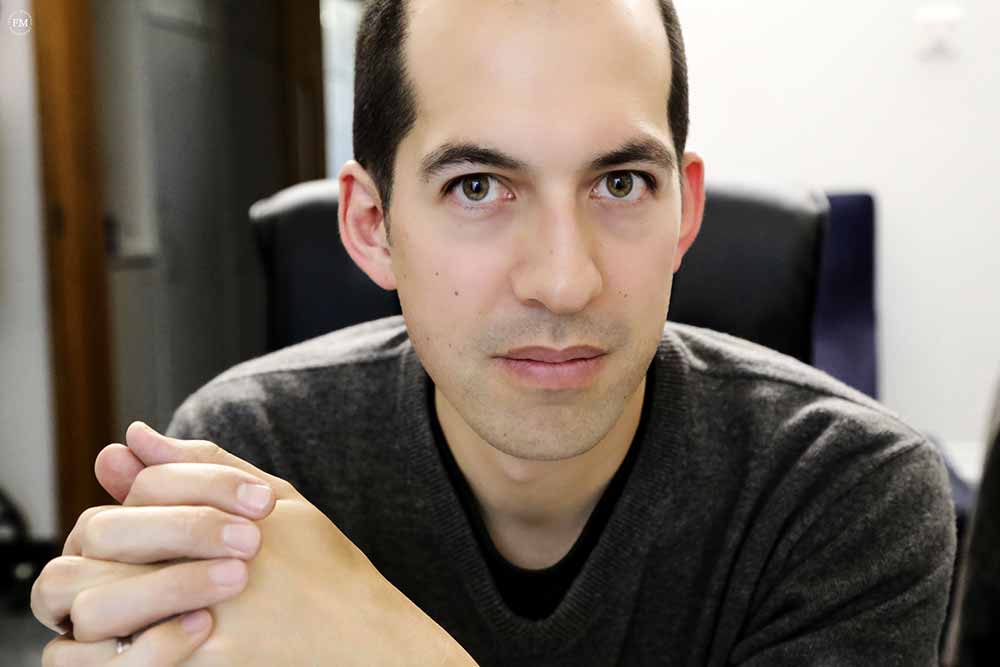

When I walked into the CTO rehearsal room for the first time, I recognized half the chorus who I hadn't seen for 10 years—it was lovely!"

Tell us about your role as associate music director at Cape Town Opera and how you first became involved with the company.
I first worked for CTO in 2012 as the second conductor on their UK tour of Porgy and Bess. I had spent quite a lot of time in South Africa directly after I left College (working for a different company), so it was a country that I knew and loved, not least because of its extraordinary choral tradition. When I walked into the CTO rehearsal room for the first time, I recognized half the chorus who I hadn’t seen for 10 years—it was lovely! Now I have a position with the company, I am conducting one production a year in Cape Town and touring all over the place. At the moment we are in Ravenna about to open a show at the Festival. I think these are some of the finest voices in the world, and some of the most fearless and committed performers. And it’s great to work on a really wide repertoire—my first Wagner opera is coming up next year—and to help nurture the emerging singers.
How has the reception of opera in South Africa developed over the past 10 years?
It’s changing. It’s complicated. But that’s true of the country as a whole. Let’s just say that the Cape Town audience is starting to realise what they have on their doorstep.
What can audiences expect of the forthcoming production of Bizet’s Carmen in October?
A very large chorus making the most unbelievable noise. A high standard of solo singing. Joy. Energy. Carmenwas the first piece I worked on in South Africa in 2000 in a summer festival. I remember being knocked backwards against a wall by the sound of the chorus—so to finally get to conduct the piece myself…I can’t wait!
To find out more about Tim Murray and Cape Town Opera check out:
tim-murray.net
www.capetownopera.co.za
All images displayed in this article are subject to copyright.
Share this article


